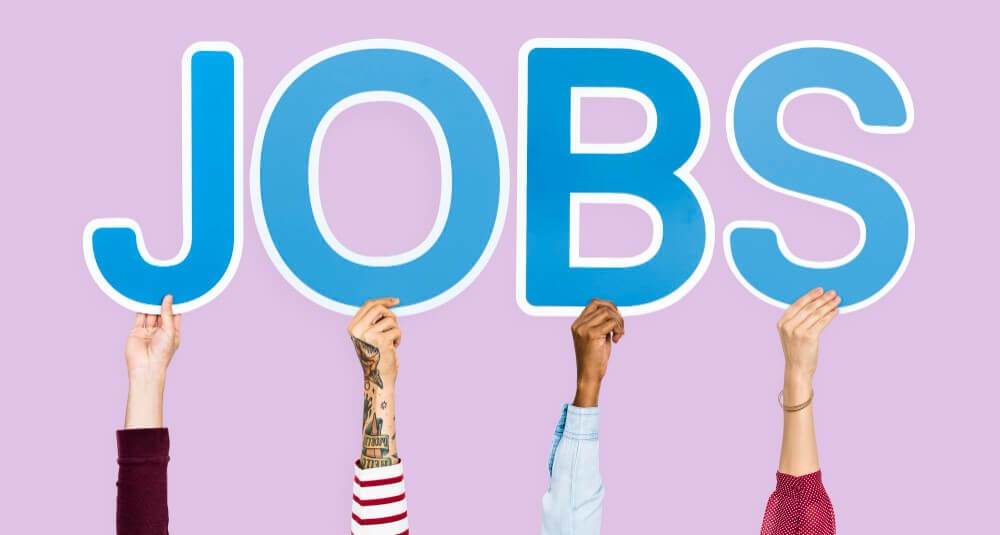Why Your Employer Branding Must Adapt to the Gen Z
Generation Z, aka Gen Z (born between 1997 and 2012) is now entering the workforce in droves. Unlike previous generations, Gen Z workplace trends prioritize purpose, flexibility, and social responsibility over hefty paychecks. This presents a unique challenge for recruiters – traditional employee branding tactics may no longer resonate.

However, innovation is rewriting the rules of hiring. Social media platforms like LinkedIn are evolving into powerful talent magnets, while employer review sites like Glassdoor hold immense sway over candidate decisions. To win over Gen Z, companies must revamp their employee branding strategies to reflect the values and priorities that truly matter to this digitally-native generation.
7 Ways to Attract Gen Z to Your Company
Get the framework below with insights on Gen Z workplace trends to attract candidates closer to your organizational goals:

Enhance Career Sites and Job Postings
Gen Z is a generation that thrives on information. Their job search begins with online research, particularly on search engines like Google. Ensure your company career site is optimized for searchability. Include relevant keywords throughout your job descriptions and company profile. Clearly outline the company’s mission, values, and culture. Showcase employee testimonials and success stories to provide a glimpse into the work environment. Develop your brand identity in Dubai to attract global Gen Z talent and stand out in a competitive hiring market. According to a study by The Muse, 70% of job seekers consider a company’s career page a significant factor in their application decision. Monitoring your website exit rate on these pages can reveal whether visitors are finding the information they need or leaving too soon, allowing you to optimize content and engagement.
Create Compelling and Meaningful Content
Gen Z craves authenticity and purpose. Ditch the generic job descriptions. Craft compelling content, with the most apt AI copywriting prompts, that resonates with their values. Highlight the company’s social impact initiatives and commitment to environmental sustainability. Showcase the real work Gen Z employees do and the impact they create. Utilize engaging visuals like infographics, Posters and short videos to capture attention. Using an ai short video generator, such as Veo AI, can help you produce quick, eye-catching videos that speak directly to their interests. Consider creating blog posts or articles that discuss industry trends, career development tips, or a day in the life of a Gen Z employee at your company. Expanding your reach through guest posting opportunities on relevant sites can also boost your brand’s authenticity and connect with a wider audience who share similar values.
Use Text Recruiting for Low-Pressure Interactions
Gen Z prioritizes work-life balance and appreciates flexibility. Traditional phone calls may not be the most effective way to reach them. Text recruiting allows for low-pressure communication. Platforms like TextRecruit offer a convenient way to initiate conversations and schedule interviews at a time suitable for the candidate. This method fosters a more modern and approachable image for your company.
Showcase Diversity in Your Employer Branding
Gen Z is the most diverse generation yet. They value inclusion and belonging in the workplace. Ensure your Gen Z employee branding materials reflect a diverse workforce. Feature employees from different backgrounds in your company photos and videos. Showcase your commitment to diversity and inclusion initiatives on your career page and social media platforms. A recent Glassdoor survey revealed that 67% of job seekers look for companies committed to diversity and inclusion when evaluating potential employers.
Use Social Media Job Applications
Gen Z is deeply integrated with social media platforms. Leverage this by allowing job applications directly through these channels. Platforms like LinkedIn offer streamlined application processes that resonate with Gen Z’s tech-savvy nature. This also expands your reach to a wider pool of potential candidates.
Implement an Employee Referral Program
Gen Z values the opinions of their peers. Encourage current employees to refer qualified candidates from their networks. Offer incentives for successful referrals. This not only taps into Gen Z’s reliance on peer recommendations but also leverages the trust they have in colleagues.
Provide Development Guidance
Gen Z is a generation known for its hunger for continuous learning and development. Highlight your commitment to professional development in your employer branding. Outline the training programs and learning opportunities you offer. Emphasize mentorship programs that connect Gen Z with experienced professionals for guidance and support. Also, highlight the use of mentoring software that offers personalized connections and supports further skill development. A survey by Deloitte found that 87% of Gen Z workers believe ongoing learning and development opportunities are important in a job.

5 Ways to Prescreen Gen Z As Candidates
The traditional resume and cover letter format may not be the most effective way to assess Gen Z candidates. Here are innovative approaches to consider:

1. Attract Gen Z Talent with One-Way Video Interview Software
Gen Z is comfortable with video communication. One-way video interview platforms allow candidates to record responses to pre-determined questions at their own convenience. This provides valuable insights into their communication skills, personality, and cultural fit without the pressure of a live interview.
2. Implement Skills-Based Assessments
Move beyond traditional experience-based evaluations. Utilize online assessments that evaluate relevant skills and competencies specific to the job role. This provides a more objective measure of a candidate’s ability to succeed in the position.
3. Prioritize Soft Skills During Interviews
While technical skills are important, prioritize soft skills like critical thinking, problem-solving, and teamwork during interviews. Gen Z values collaboration and communication, so evaluate their ability to work effectively within the team. Consider incorporating group interview exercises or case studies to assess these skills in action.
4. Engage with Candidates on Social Media
Social media platforms offer a wealth of information about potential candidates. Review their online profiles to gain insights into their interests, values, and work ethic. This can provide valuable context beyond the resume and cover letter. Partnering with companies specializing in social media marketing can help streamline the process by using advanced tools and strategies to gather relevant candidate insights efficiently. However, compliance with all relevant data privacy regulations must be ensured.
5. Gamification in the Hiring Process
Gen Z is a generation that thrives on challenges and competition. Consider incorporating gamified elements into the application process. Interactive quizzes or assessments can not only assess skills but also provide a more engaging and memorable experience for the candidate.
End Thoughts
Your employer branding and recruitment strategies must resonate with Gen Z to attract top talent and build a future-proof workforce. Gen Z prioritizes purpose, flexibility, and development opportunities. Embrace innovation in your hiring process and showcase your company’s commitment to these values. Exploring strategies like guest posting can also amplify your employer brand online, helping you reach Gen Z where they spend most of their time. By this, you can position yourself as an employer of choice for the next generation of talent.

FAQs
What is employee branding?
Employee branding is how a company portrays itself as a workplace. It encompasses company culture, values, work environment, and employee experiences. A strong brand attracts and retains top talent.
Why is employee branding important for Gen Z talent?
Gen Z values authenticity and purpose in their careers. A strong employee brand showcases a company’s commitment to social responsibility, diversity, and employee well-being, resonating with Gen Z job seekers.
What makes Gen Z workers different?
Gen Z is the most digitally native generation, valuing tech-enabled workplaces and flexible work arrangements. They prioritize social impact and purpose-driven work, seeking employers aligned with their values.
Key characteristics of Gen Z for employers to consider?
Gen Z is entrepreneurial, seeking opportunities for learning and growth. They value transparency and open communication from leadership. They are highly collaborative and comfortable with diverse work environments.
Additional ways to attract Gen Z talent?
- Offer robust internship programs.
- Highlight opportunities for professional development and skill-building.
- Showcase a strong social media presence that reflects company culture.
- Emphasize work-life balance and flexible work options.



